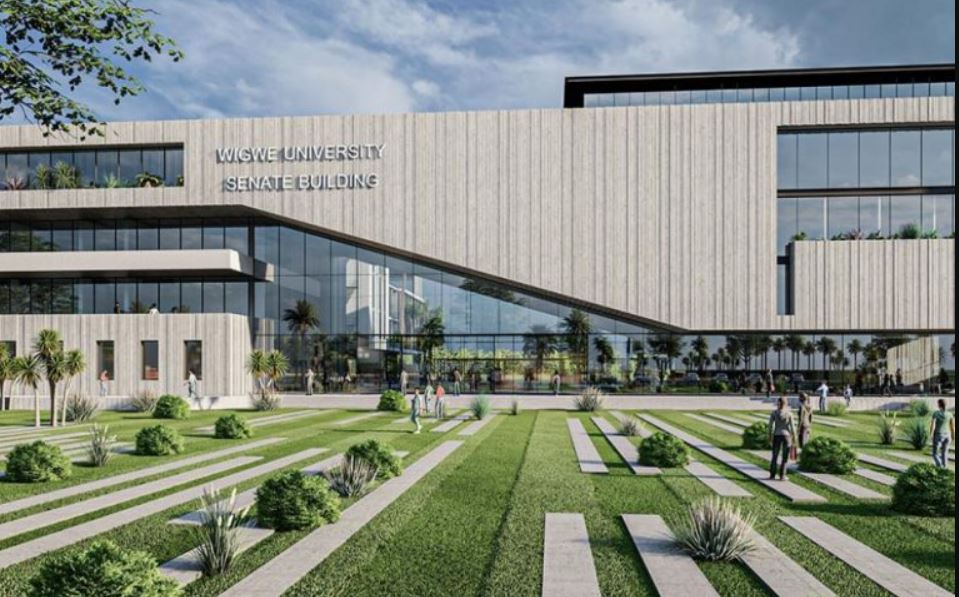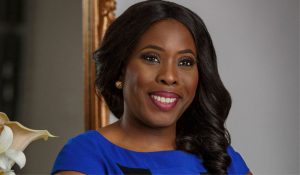
Wigwe University becomes Nigerian most varsity
The fees and proposed upscale facilities of the newly established Wigwe University, Port Harcourt, Rivers State, add to ongoing debates about expensive universities that are out of the reach of Nigerians in the middle and lower strata of society.
“I cannot change the world overnight. But if I can empower even one youth today, or tomorrow, they could join me in empowering others. With time, we could change the world,” were the words of the late Herbert Wigwe, the founder of Wigwe University, Port Harcourt, Rivers State.
Wigwe, who died in a helicopter crash alongside his wife, Chizoba, and son, Chizzy, in the United States, was also a co-founder of Access Holdings (owners of Access Bank PLC).
The school, located in Isiokpo, Port Harcourt, when inaugurated in August 2024, could be Nigeria’s most expensive university, topping the likes of Covenant University, Otta; Nile University, Abuja; Pan-Atlantic University, Lagos, and Baze University, Abuja, which are said to be some of Nigeria’s most expensive universities.
The varsity which is set to open its gates to its first set of students in August is also said to be run fully on 24-hour electricity and WiFi.
According to the school’s website, it also has an active conservation plan.
“With environmental protection as one of our eight sustainability pillars, we not only prioritise our impact but have looked to the area’s natural state to guide our campus design and planning.
“Port Harcourt’s tropical rainforest and indigenous plant species, lost through previous agricultural practices, are actively being reintroduced, whilst stormwater attenuation, vegetation, and fauna conservation direct our landscaping. Pedestrian, cyclist, and electric people-mover campus routes, along with forest walking/jogging/cycling trails, connect students to our surrounding environment, encouraging a lifelong love of nature,” it stated.
The university will offer a diverse range of programmes across four major colleges – the College of Management and Social Sciences, the College of Art, the College of Science and Computing, and the College of Engineering.
Since the school mentioned that it would commence its first session in August, it has set off public debates among educational stakeholders, parents, and prospective students.
Many have said the university would only just be for the elite who could afford it but would not be made available to the children of the poor.
However, some others on the other side of the divide, have said quality education does not come cheap, adding that anyone who cannot afford it should go to a school they can afford.
With the fees said to be as high as N12m per session, the university could become, undoubtedly, Nigeria’s most expensive university.
A check on the school’s website shows that the cheapest fee is the College is Arts which stands at N9.6m.
Students taking courses in the College of Engineering, College of Management and Social Sciences, and College of Science and Computing will pay a total fee of N11,998,800 each.
The fees cover tuition, books, laboratory supplies and consumables, personal protective equipment, project lab resources, e-learning resources, health insurance, student membership in professional associations, student activities, and facilities maintenance.
There are also additional charges covering accommodation fees which include the luxury single-bedroom apartment plan at N1,000,000 per month, premium one en-suite bedroom plan at N3,845,000 per session, classic one plan at N3,707,000 per session and classic two plan at N3,500,000 per session.
The management of the university, while defending its decision to charge in dollars, recently stated that home students would pay their fees in naira, while international students could select the dollar payment option.
It also said the decision was a strategic one that aligned with its vision to attract a diverse and international student body.
School’s defence
Defending the fees, the university said it was unwavering in its commitment to excellence in education and the shaping of future African leaders.
It said, “Our purpose is to build and nurture truly responsible, fearless leaders that will drive transformative change in Nigeria and Africa. We recognise that the realisation of sustainable progress in Africa hinges on the cultivation of leaders who are not only academically proficient but also possess a relentless obligation to change the current narrative of Africa and its people.
“Wigwe University stands apart as an educational institution with its unique mission to go beyond providing a world-class education. We believe it is just as important to inspire greatness and develop a fearless spirit in our students that will lead to positive change in the world.”
It also described the institution as a seat of learning, where knowledge, resilience, innovation, ethical leadership, social responsibility, and national progress were intertwined, adding distinguished faculty, mentorship programs, and extracurricular activities were “all designed to provide an exceptional, thought-provoking environment that produces great leaders”.
“From the moment our students pass through our doors, they begin a substantive programme where they will be developed into fearless leaders ready to take on the many important challenges of the world. We view each student as a beacon of hope and a baton of positive change for a better Africa.
“We do more than award degrees; we are here to make history. This is what it means to be fearless,” part of an opening statement on its website read.
The varsity, however, said it offered a flexible payment plan “to ensure that high-quality education remains within reach because we understand that it’s the only pathway to Africa’s progress”.
The options are the student loans from Access Bank and the payment in two installments per session.
It, however, noted that the accommodation fee of N1m must be paid in full.
Before his death, Wigwe, speaking on the prospects of the university, said it was a culmination of his lifelong ambition.
“Thus Wigwe University is the African gateway to the world of entrepreneurship, technology, innovation, and impact,” he said.
The school’s Vice-Chancellor, Professor Miles Davis, was until recently, the President of Linfield University, a private liberal arts university, in Portland, Oregon, United States.
Access to higher education in Nigeria remains a contentious issue, with various factors contributing to the unequal distribution of educational opportunities across socioeconomic lines.
While the country boasts a growing number of universities, both public and private, significant challenges persist, particularly for students from low-income backgrounds.
The multifaceted challenges of university penetration and lack of access for the poor in Nigeria, taking into account issues such as high tuition fees, strikes in public universities, and others have become systemic barriers.
The Punch









